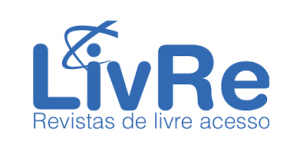PROCESSOS DE GUARDA COM A OCORRÊNCIA DE ALIENAÇÃO PARENTAL: UMA ANALISE DA MEDIAÇÃO COMO MEIO HÁBIL PARA RESOLUÇÃO DOS CONFLITOS
Resumo
Este artigo tem como finalidade fazer uma averiguação acerca da possibilidade da alienação parental, como se dá, como acontece os processos, como ocorre a motivação da denunciação caluniosa. A manipulação exercida, geralmente por um dos pais, sobre criança ou adolescente, contra o outro genitor, caracteriza a conduta de alienação parental. A ação alienatória é capaz de gerar sérias repercussões de ordem psicológica nos envolvidos, que geralmente apresentam um padrão de comportamento, a facilitar a identificação de casos tais. Uma vez detectada a ocorrência de alienação parental, devem ser adotadas medidas aptas a suavizar os efeitos dessa prática, a exemplo do tratamento psicológico dos participantes. Na hipótese de inércia em relação ao impedimento ou minoração das consequências advindas do processo alienatório. Entre os ilícitos mais frequentemente denunciados de forma maliciosa, em decorrência da alienação parental, encontram-se os maus tratos. Com o intuito de obstruir o início da ação dos alienadores ou, ao menos, evitar o seu prosseguimento, Parte deste trabalho fará observações sobre algumas questões relativas a SAP e o processo de mediação entre os genitores para solução do problema configurados em revisões de literatura. Nessa perspectiva, delineiam-se viáveis, no combate à denunciação caluniosa motivada por alienação parental, a priorização da guarda compartilhada, o amparo dos Conselhos Tutelares, a incidência da mediação, a criminalização específica da conduta, que passaria a ser causa de aumento de pena do crime de denunciação caluniosa. Daí a importância da mediação de conflitos para sua minimização.
Palavras-chave: Alienação parental. Mediação. Denunciação caluniosa.
Downloads
Publicado
Como Citar
Edição
Seção
Licença
Copyright (c) 2023 A REVISTA REFLEXÃO E CRÍTICA DO DIREITO utiliza uma licença Creative Commons - Atribuição-Não Comercial BY-NC 4.0 Internacional. Os autores dos trabalhos aprovados autorizam a revista a, após a publicação, ceder seu conteúdo para reprodução em indexadores de conteúdo, bibliotecas virtuais e similares. A revista se permite o uso dos trabalhos publicados para fins não comerciais, incluindo o direito de enviar o trabalho para bases de dados de acesso público.

Este trabalho está licenciado sob uma licença Creative Commons Attribution-NonCommercial 4.0 International License.
A submissão de artigos à REVISTA REFLEXÃO E CRÍTICA DO DIREITO está vinculada à licença da Creative Commons CC BY-NC 4.0 internacional. Através desta licença, o autor mantém seus direitos autorais, mas permite, para fins não comerciais, que as pessoas possam copiar e distribuir o seu trabalho, reservando os respectivos créditos, nas condições especificadas.
Ao submeter artigos à REVISTA REFLEXÃO E CRÍTICA DO DIREITO o (a) autor (a) já autoriza sua publicação, em caso de aceitação, após o devido processo de avaliação, ciente da política de acesso livre do periódico.
O autor (a) declara ciência de que serão publicadas todas as informações consignadas na submissão, incluindo nome, afiliação, titulação e endereço eletrônico.
Da mesma forma, o interessado, ao submeter o trabalho no site da revista, DECLARA QUE É AUTOR (A) DO TRABALHO, BEM COMO DO VÍNCULO DAS DEMAIS PESSOAS TAMBÉM APONTADAS COMO AUTORAS, assumindo inteira responsabilidade por tais declarações.
O periódico não cobra nenhum tipo de taxa. Todas as submissões, avaliações e publicações são gratuitas, bem como o seu acesso é aberto e também gratuíto.







